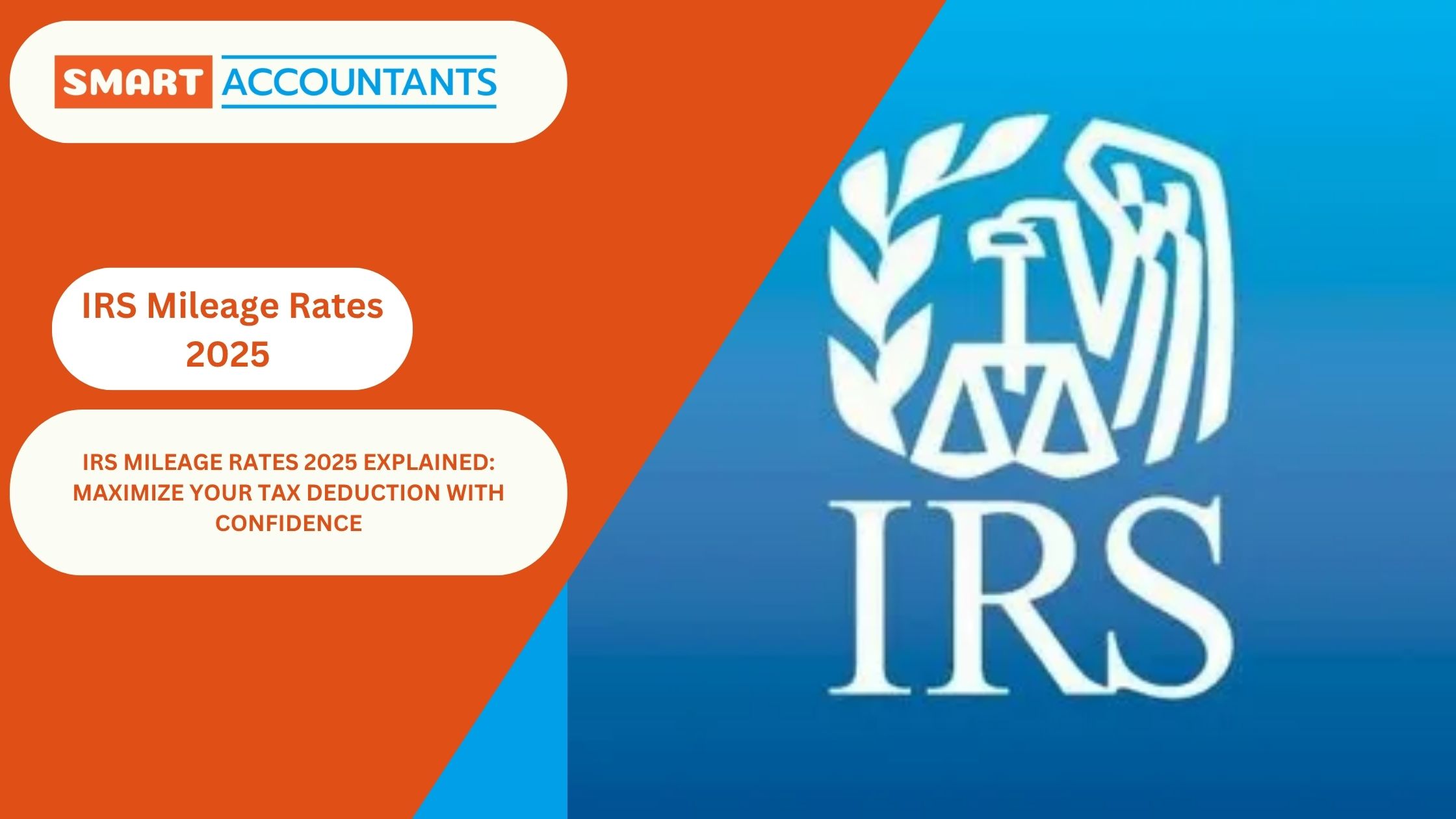For 2025, the IRS has updated the standard mileage rate for business use of a personal vehicle to 70 cents per mile — up from 67 cents in 2024. This rate applies to self-employed professionals, freelancers, and small business owners who use their personal car for work-related travel.
Here’s a quick breakdown:
| Purpose | 2025 Rate | 2024 Rate |
| Business | $0.70 | $0.67 |
| Medical or Moving (Military) | $0.21 | $0.21 |
| Charitable (Unchanged) | $0.14 | $0.14 |
If you drive 5,000 miles for business in 2025, your total deduction would be $3,500 using the standard mileage method.
💡 Need help calculating your business mileage deduction? Our services can do that for you — with full IRS compliance.
Who Can Claim the Mileage Deduction in 2025?
Mileage deductions aren’t for everyone — and the IRS has specific rules about who qualifies. Here’s a simple rule of thumb:
Eligible:
- Sole proprietors
- Independent contractors
- Freelancers
- Single-member LLCs
Not eligible:
- W-2 employees (unless your employer has a formal reimbursement plan)
If you’re unsure about your eligibility, our tax management services can assess your case and help you claim every legal deduction.
Standard Mileage Rate vs. Actual Expense Method: What’s Better?
You can choose between two deduction methods:
1. Standard Mileage Method
- Multiply total business miles by the IRS rate (70¢/mile in 2025)
- Easier to calculate
- You can’t deduct gas, insurance, or repairs separately
2. Actual Expense Method
- Deduct a portion of actual car-related expenses (fuel, insurance, repairs, lease)
- You must track all expenses and allocate the business-use percentage
| Example | Standard Rate | Actual Expense |
| Miles Driven | 5,000 | 5,000 |
| IRS Rate | $0.70 | — |
| Deduction | $3,500 | ~$2,900 (if actual expenses are lower) |
To determine which works best for you, we’ll walk you through both as part of our bookkeeping support.
How to Track Mileage for Tax Deductions (Without Mistakes)
Poor mileage logs are one of the top red flags during IRS audits. Avoid errors by:
- Recording date, destination, purpose, and miles
- Separating personal and business miles
- Using trusted apps like MileIQ, Everlance, or QuickBooks Self-Employed
Mileage logs also support clear financial reporting, especially during quarterly or annual reviews.
Reporting Mileage on Your Tax Return: A Step-by-Step Guide
Depending on your business structure, here’s where mileage deductions go:
- Sole Proprietors: Form 1040 Schedule C
- S-Corp / C-Corp: Reimbursements reported via payroll (see your payroll services provider)
- Partnerships: Partners use Schedule E for unreimbursed business expenses
Need help filing correctly? Our tax management services ensure every mile is accounted for.
IRS Mileage Rules for Employees, Contractors, and Business Owners
Self-employed? You can deduct mileage for:
- Client meetings
- Business errands (e.g., banking, supply runs)
- Travel between job sites
Employees? You must use an Accountable Plan through your employer to receive tax-free mileage reimbursements. This is typically handled via payroll services.
Gig worker or freelancer? You still qualify — and we can help you record, report, and defend every mile.
FAQs About IRS Mileage Rates and Tax Deductions
Q1: Can I deduct commuting miles from home to my office?
No. The IRS doesn’t allow deductions for commuting. Only business-related travel counts.
Q2: Do I need receipts for gas if I use the standard mileage rate?
No. The rate covers gas, maintenance, depreciation, etc.
Q3: Can I switch between methods each year?
Yes — unless you’ve claimed depreciation under the actual method in a prior year, which limits switching.
Q4: Are electric vehicle miles deductible?
Yes, the same rules apply. But fuel costs (charging) are not separately deductible if using the standard method.
Q5: What if I get audited?
You’ll need a complete mileage log. We prepare audit-proof logs as part of our bookkeeping and accounting services.
Final Thoughts: Let eSmart Accountants Simplify Your Tax Journey
Tracking mileage isn’t just about deductions — it’s about peace of mind. With eSmart Accountants, you gain a team that ensures accuracy, compliance, and clarity with every mile you drive.
Whether you’re a solo entrepreneur, gig worker, or small business owner, our accounting services are built to support your financial goals.






